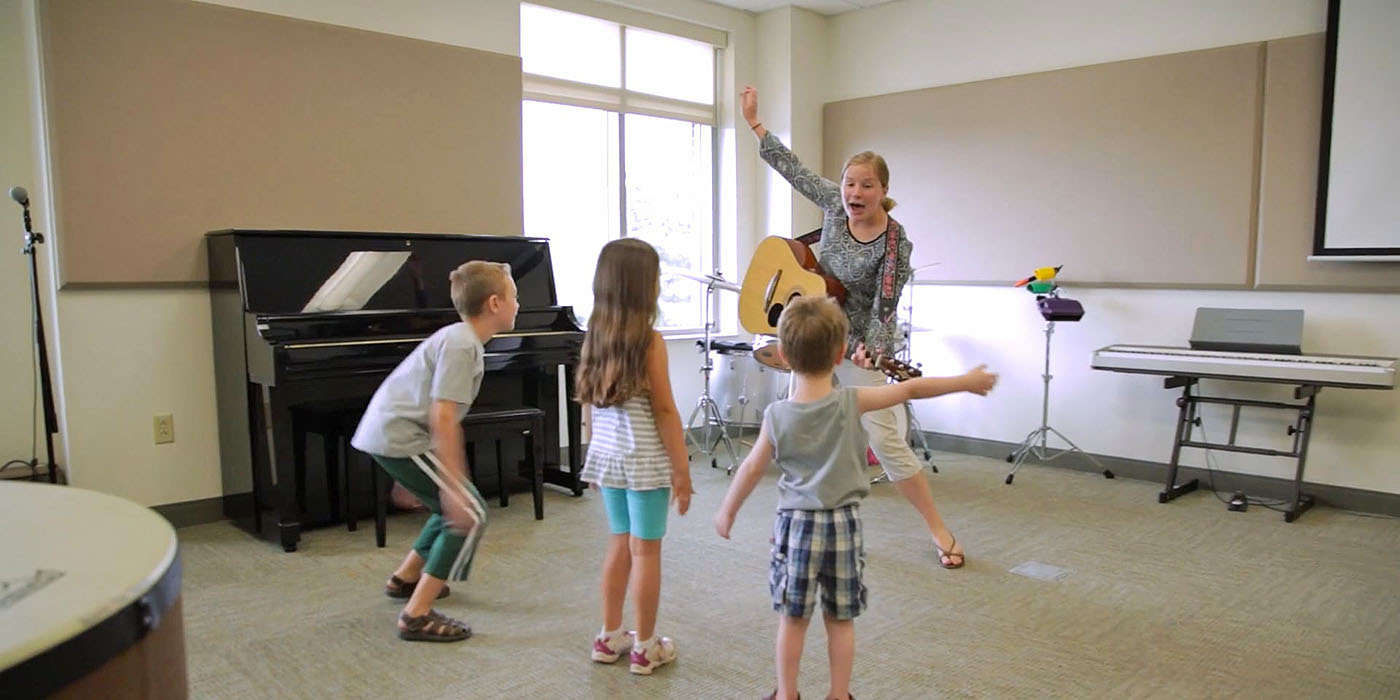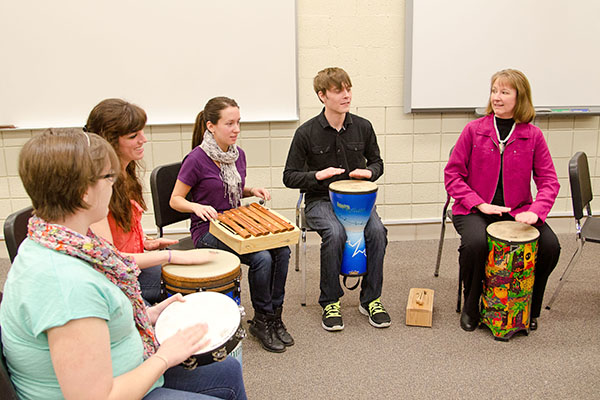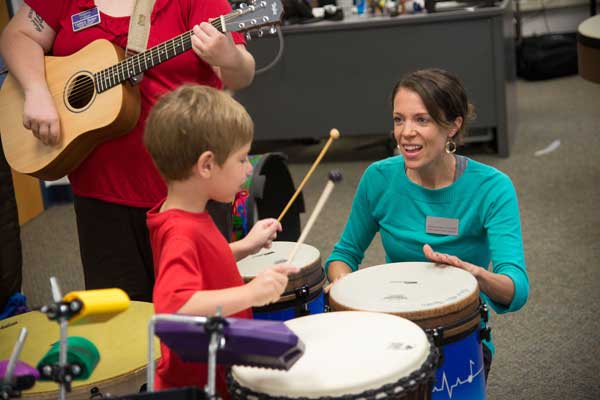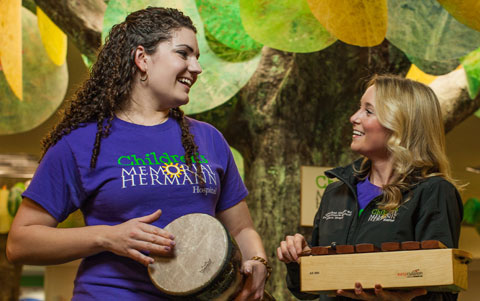Music Therapy
Bachelor of Music
Study the impact of melody, harmony, and rhythm on children and adults.
Music therapy is the clinical and evidence-based use of music interventions to accomplish individualized goals within a therapeutic relationship. Board-certified music therapists (MT-BCs) work in medical, psychiatric, and educational settings to help clients improve psychological and physiological functioning. Your clinical training will include a board-certified music therapist as a supervisor at every session throughout your four years. You will get experience conducting sessions in community health care and education settings and in our state-of-the-art Music Therapy Clinic.

Highlights
Receive four years of music lessons and you can perform in recitals and with multiple ensembles
Gain clinical skills in the York Wellness and Rehabilitation Institute on campus.
Study abroad options in South America, Europe, and Africa.
Learn piano, guitar, and percussion, along with your primary instrument



Career Paths
- School music therapist
- Gerontology specialist
- Mental health clinician
- Medical music therapist
Example internships
- Strong Memorial Hospital
- Hospice Buffalo
- The Wildwood School, VA
Employers
- Golisano Children’s Hospital at Strong Memorial Hospital
- West Palm Beach Hospice
- Saint Barnabas Medical Center, NJ
- Giant Steps Autism Treatment, CT
70+
study abroad options to enrich your experience, including Austria, Italy, or Sweden
550-seat
Glazer Music Performance Center: state-of-the-art building designed to provide excellent acoustics for large instrumental and vocal ensembles
MT-BC
gain eligibility to sit for a national certification exam for a board certification credential (MT-BC)
Music Therapy at Naz
How to Audition
Auditions are required for this major. View audition details and register.
FAQs
Job prospects, interview prep, & more: See answers to frequently asked questions.

Alumni Spotlight
Jessica Jarvis ‘11
A six-month internship at Children’s Memorial Hermann Hospital in Houston, Texas, led to a full-time job there for Jessica Jarvis (left) as one of three board-certified music therapists. In a Texas Medical Center story, Jarvis said, "To see the joy in a mom’s eyes when her child gets up and walks for the first time because it’s easier with music as a stimulation and motivation… I see music therapy making a real difference in my patients." Jarvis went on for a doctorate in rehabilitation sciences, to advance research in the field, including testing music therapy intervention in pediatric intensive care.